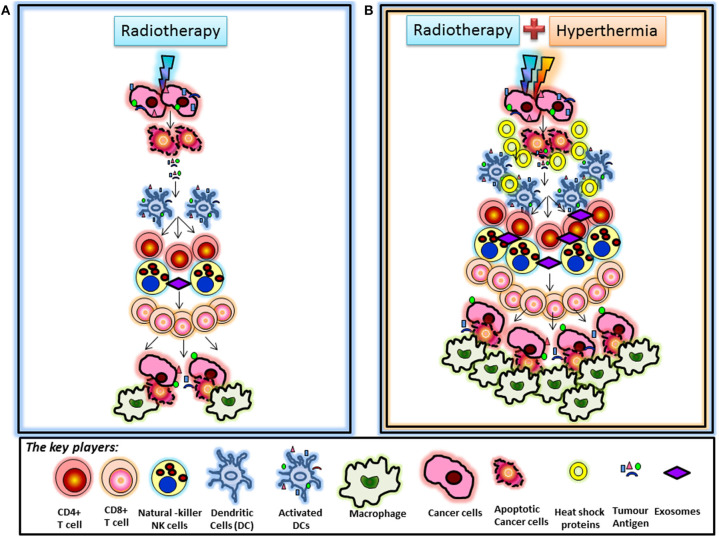Figure 2.
(A) Radiotherapy-induced immunomodulation: Immunomodulation induced by radiotherapy is known to be mediated via the sequence of events initiated by activation of dendritic cells, which take up tumor antigens released from cancer cells following radiation-induced cell death. Activated dendritic cells activate T cells leading to a cascade of events resulting in stimulation of cytotoxic CD8+ T cells. These cells are further promoted by radiation-induced chemokines to kill tumor cells that are finally scavenged by macrophages. (B) Immunomodulation following hyperthermia and radiotherapy: The differential observation of increased CD68+ macrophage infiltration in the part treated by combined hyperthermia + radiotherapy could be the result of accelerated immunomodulation secondary to hyperthermia. Hyperthermia along with radiotherapy is known to release heat shock proteins by tumor cells, which may act as additional “danger signals” that may further promote immune responses. Heat shock proteins and antigen-containing exosomes could contribute to dendritic cell recruitment leading to enhanced immunomodulatory effects in this part. This may speed up radiation-induced immunomodulation, as suggested by increased CD68+ macrophage infiltration in this part. These interpretations are based on the observation that the tumor specimen taken at 6 weeks showed CD4+ T cell infiltration in the part treated by radiotherapy alone, likely representing a first set of events of radiation-induced immunomodulation. In turn, a higher number of CD68+ macrophages were found in the part treated by thermoradiotherapy (207).

